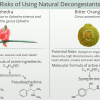What are Dog Allergies?
The term dog allergies has evolved to have 2 different meanings and this can be confusing for someone seeking information on the subject.
Dog allergies can refer to either:
- A person who is allergic to dogs e.g. the dog’s dander triggers an allergic reaction in a human.
- A dog that has allergy problems e.g. the dog is allergic to certain food ingredients.
When referring to people, it simply implies someone with an allergy to dogs. However, with regard to dogs, the term is used loosely to include a wide variety of possible allergies e.g. the dog may have a flea allergy, grass allergy, eye allergy etc.
Though the meanings are distinct, there is still commonality in that they both involve the issue of allergies and dogs; the dog is the central component being either the source of, or suffering from, the allergy problem. However, most websites covering the topic, address only a selected number of issues to just one of the points noted above. Furthermore, it is not uncommon for a person (or family member) to suffer from an allergy to dogs yet own a dog that suffers from allergies!

Dog Allergies Overview
The scale of the problem caused by dog allergies should not be underestimated.
According to the American Academy of Allergy, Asthma and Immunology (aaaai.org), approximately 42 million Americans suffer from some sort of allergy response to pets, whilst its counterpart, the American College of Allergy, Asthma and Immunology (acaai.org) notes that approximately 10 percent of Americans are allergic to dogs. In fact, between 20-30% of people with asthma have pet allergy symptoms. Therefore, this is a significant problem given that almost half of U.S. households have a dog or a cat.
Symptoms of allergies to pets can range from mild to severe and may include sneezing, congestion, breathing problems, a runny nose and rashes. Not only do these symptoms directly impact a person’s well-being both physically and mentally (e.g. become more irritated, sad or depressed) but they can be associated with an increased risk of developing other seemingly unrelated conditions e.g. allergy sufferers are up to 14 times more likely to experience migraines. Despite this, a recent survey reported that 75% of allergy suffering pet owners would still never consider getting rid of their pets. Put simply: we love our animals and especially our dogs!
Although most people do not realize how common allergies to dogs are, the issue came to prominence when the president-elect Barack Obama was reported to be searching for a dog for his allergy-suffering daughter Malia. Though many factors should be considered when choosing a suitable breed of dog to buy, the possibility of selecting a dog that has been bred to minimize allergy reactions in humans – commonly referred to as an allergy friendly or hypoallergenic dog – should be one that is given consideration. Even if you or your family members do not suffer from dog allergies, it’s comforting to feel that visitors to your home who do suffer from them, may have a far more pleasant and enjoyable visit. However, as we will discover, there is ongoing debate and polarity of opinions concerning the medical benefits that such dogs provide.
The issue of dogs suffering from allergies (allergies in dogs) appears to have increased notably in the last few decades, with figures quoted as high as 15% of dogs being affected by the problem. Although certain similarities and parallels can be drawn with human allergies, the characteristics of a dog with allergies may differ regarding causes, symptoms, diagnosis and treatments due to their distinct anatomy and physiology. However, given that the immune system and the underlying allergy mechanism in both dogs and humans share much commonality, it is highly probable that the physical and emotional well-being of a dog who experiences dog allergies mirrors the impact allergies can have on humans. Moreover, forewarned is forearmed; being aware that certain breeds appear to be more susceptible to allergic reactions can help minimize the risk of ending up with a much loved but, unfortunately, allergy-prone dog.
Dog Allergies Online
DogAllergiesOnline.com aims to provide both in-depth articles, as well as present the bigger picture concerning both aspects of the topic of dog allergies. This site will be rolled out over the next few months and then updated on a regular basis with topical articles, expert guest posts and latest news from the world of dog allergies. A forum will be included to act both as a resource and a meeting point for those affected by the problem.
This site is organized into the following main sections:
In the interest of clarity, the following system will be used throughout this site when and where appropriate:
 |
This symbol refers to articles primarily related to people with allergies to dogs i.e. allergic to dogs |
 |
This symbol refers to articles primarily related to dogs with allergies i.e. allergies in dogs |
Therefore, whether you are an existing dog owner whose 4-legged friend is the source or trigger of your allergy problems (i.e. allergic to dogs) or you are at the stage of considering buying an allergy friendly dog, DogAllergiesOnline.com will present the information you need in a concise and straightforward manner. Furthermore, there will be areas packed full of practical tips and actionable advice dedicated to those whose dog is unfortunately suffering from allergies (i.e. allergies in dogs).


















